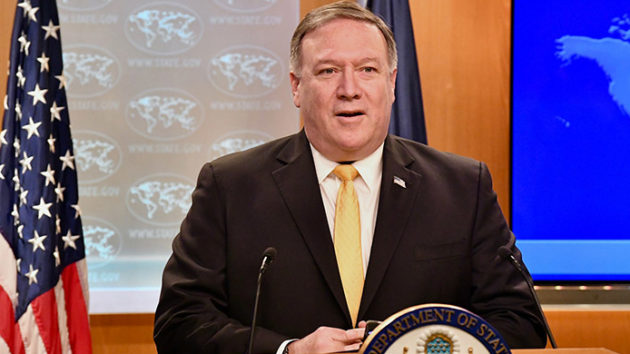Second Thoughts on First Amendment?
If there were a book on how to agitate an anti-faith extremist, chapter one would almost certainly recommend talking about the importance of religious liberty in America. That definitely worked on LA Times’s opinion writer Michael McGough, who was so perturbed by Secretary of State Mike Pompeo’s speech on international religious freedom report that he spent 446 words quibbling over the order of our First Amendment.
What did the secretary say that was so offensive, exactly? Nothing that isn’t common knowledge to everyone who’s taken fifth grade history. “Religious freedom is in the American bloodstream,” Pompeo said. “It’s what brought the pilgrims here from England. Our founders understood it as our first freedom. That is why they articulated it so clearly in the First Amendment.”
McGough, who must have missed the class on religious persecution in 17th century England, took issue with Pompeo’s observation that religious liberty was the key to all other freedoms. “Not quite,” he fired back.
“[B]y linking ‘first freedom’ to “First Amendment,” the secretary of state seemed also to be suggesting — erroneously — some connection between the two ‘firsts.’ If so, he wouldn’t be alone. In 1993, during a debate on the Religious Freedom Restoration Act Rep. Jerrold Nadler (D-N.Y.) said: ‘It was no accident that the Framers of our Bill of Rights chose to place the free exercise of religion first among our fundamental freedoms.'”
“It’s true that the 1st Amendment mentions religion before it moves on to guarantee freedom of speech, freedom of the press, and the right to peaceably assemble, and to petition the government for a redress of grievances… But the idea that this makes either the First Amendment, or freedom of religion, more important than other constitutional rights is a pious fiction.”
Of course, the freedom of religion was of preeminent importance to the framers. They were only a century and a half removed from the nightmare that drove 102 people to take a two-month journey to an unforgiving land on a ship the size of a volleyball court. They didn’t do that because they were adventurers — or in search of great riches. They came here for the freedom King James I denied them: the ability to worship freely and in peace. Years later, Samuel Adams talked about the relationship between these liberties when he said, “Driven from every other corner of the earth, freedom of thought and the right of private judgment in matters of conscience direct their course to this happy country as their last asylum.”
If McGough wants to squabble over the order of our First Amendment freedoms, let him. But that still doesn’t alter the reality that a free society hinges on free religion. And, ironically, by invoking Jerrold Nadler (who is as liberal as they come), McGough is exposing just how far outside the mainstream his position really is. If the importance of religious liberty is acknowledged by even the fiercest of New York Democrats, then this reporter is only marginalizing himself by attacking it. That — not Pompeo — is the real extremism.
Religious liberty is for everyone — not just for conservatives, and certainly not just for Americans. It’s a human right on which all other freedoms are built. “God who gave us life gave us liberty,” Thomas Jefferson said. “And can the liberties of a nation be thought secure when we have removed their only firm basis, a conviction in the minds of the people that these liberties are of the Gift of God?”
Tony Perkins’ Washington Update is written with the aid of FRC senior writers.
RELATED ARTICLES:
Obama Reflects: Hope, Change, and Confusion
‘I Have Set Watchmen on Your Walls, O Jerusalem…‘



Leave a Reply
Want to join the discussion?Feel free to contribute!